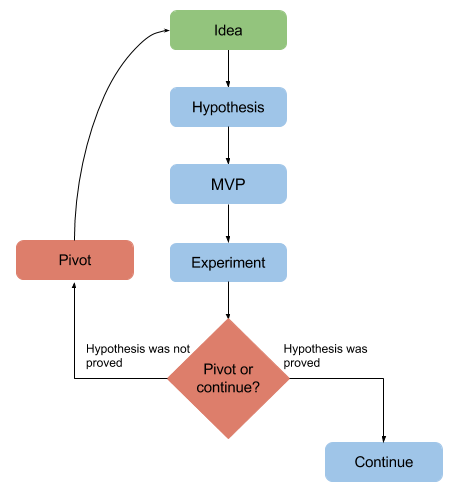Why this startup decided to change direction and what other founders can learn from the pivot – StartupSmart

At Prezentt we recently refocused, moving away from targeting anyone delivering a presentation to a narrow focus on training.
We decided to make the change by understanding why people weren’t using our product, rather than the reasons people were.
When we launched back in 2014, we had a wide ranging target customer for our product: anyone giving any type of presentation.
One of the problems we were aiming to solve was that presenters often don’t have enough time to answer all the questions that their audience wants to ask, so Prezentt allows the audience to ask questions and add notes online. Another key issue was that presenters often aren’t able to collect contact details from their audience, so Prezentt captures all these when the audience accesses the presentation material.
Whilst we felt these two problems were worth fixing, it turned out that the problem wasn’t big enough for others to see the real value.
Another mistake we made was to allow four presentations per year for free. For many non-professionals, four presentations was more than ample, so they never had to part with their money.
So the question we faced was how do we provide more value to more people so that we can get more of them to embrace our platform?
Starting mid-last year, we hunted down a number of people who tried our product and asked them why they hadn’t upgraded. If you think it’s hard to get feedback from happy customers, I can tell you it’s even harder to get feedback from people who were literally just kicking our tyres.
This was the most valuable feedback though: nuggets of great thoughts from people who weren’t truly embracing our product. It took some coaxing to get honest and brutal thoughts, however we are thick skinned, so eventually we managed to pull it out.
What we discovered was that we weren’t solving some of our users’ real pain points well enough. We also weren’t communicating what we were solving well enough.
For training companies, who were some of our users, they found Prezentt helped save huge costs and a lot of time for them in delivering training. The downside though was that each trainer needed their own Prezentt account, since we didn’t have any team or organisation features.
When you start looking at a subset of your customers, you start finding out more about they actually need. We were solving a few of their problems, however there were other features, which whilst not huge to add, we hadn’t considered.
Looking at the features we didn’t have, we realized if we focused on groups of trainers, we’d get better traction. So we created a long list of potential features, and went back to some of these receptive people and asked them to prioritise what was important to them.
So we got to building Prezentt 2.0 – one that had these features and one that encouraged sharing positive feedback, added branding to pages, and one that demonstrated cost savings.
By relaunching as a training delivery platform instead of another online presentation tool, we created a new category of product that we could own: the training delivery platform.
On top of this, by narrowing our target audience to a specific subset of our existing trial and paying customers. We could talk directly to them, in their own language of students not audiences, of extending learning management systems (LMS) – not just uploading from other platforms.
Whilst it is still early days for the new Prezentt, we’re excited by the renewed interest we are receiving. Now that we explain our biggest benefit (cost savings) up front, rather than buried in copy, we are getting more enquiries, and prospects are understanding our value quicker.
Key lessons for founders
My key takeaways for all startup founders are:
- Always look at adoption rates, and how you can increase them
- Speak to those who are dropping off, as often as those who are upgrading
- Be thick skinned, and ask for brutal feedback; you don’t want to hear your product is OK, you want to hear why it sucks
- Don’t be afraid to pivot. Changing direction is something that is way easier for a two year-old business than a 20-year-old business
- Don’t be afraid to talk about costs up front. Particularly if you can demonstrate that you can save significant money for customers
Follow StartupSmart on Facebook, Twitter,LinkedIn and SoundCloud.

